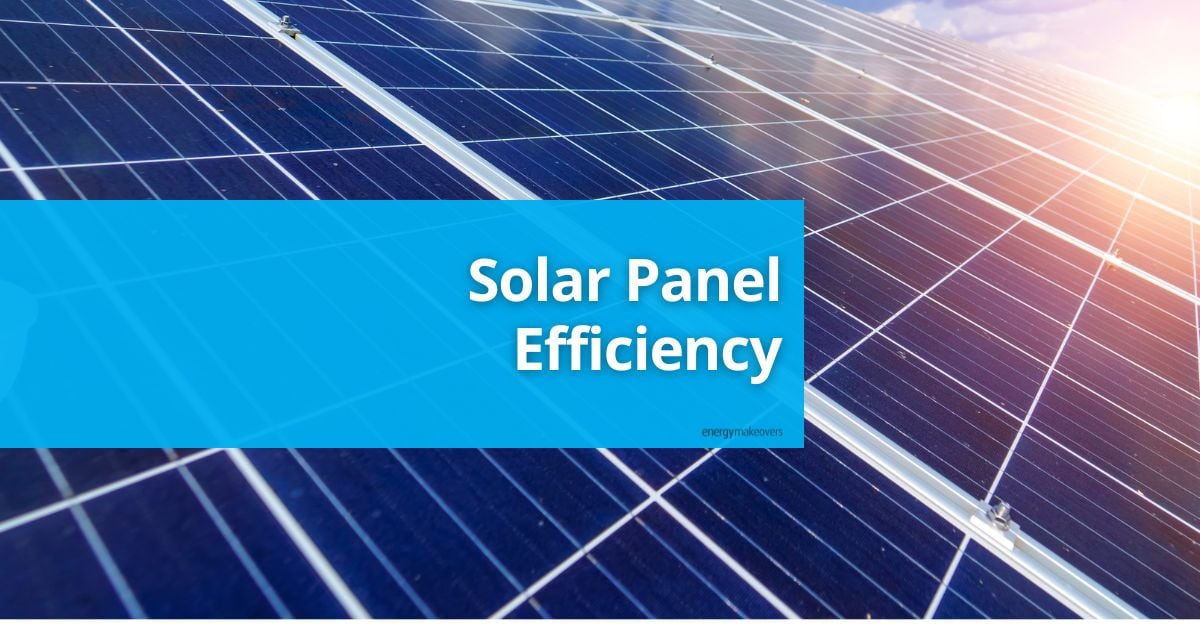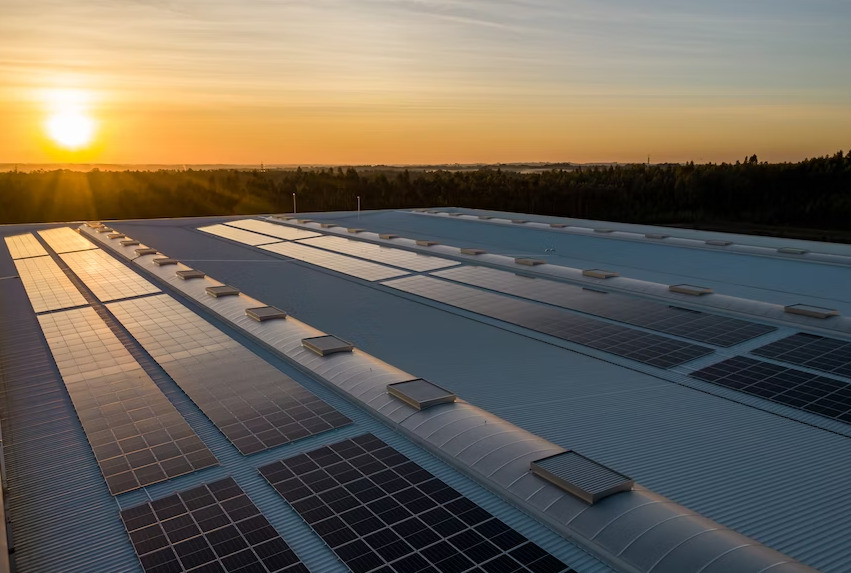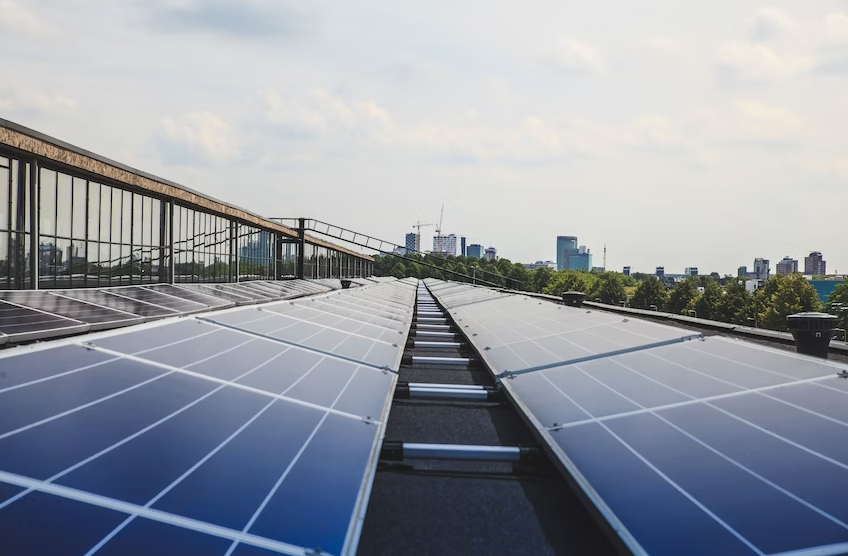
If you’ve found this post, it’s because you want to know more about solar panel efficiency. Perhaps you’re interested in a commercial solar panel system for your business. That’s great – solar is the future and you’re on the right track.
Solar panel efficiency is a measure of how effectively solar panel systems convert sunlight into usable electricity. The higher the efficiency, the more energy your business can collect from the sun’s rays.
If you’re researching solar energy systems for your business you’re probably assessing the value to your business, how quickly a system will pay for itself, and the value it will add to the business. Solar panel efficiency is an integral part of working out the payback period and the value a system would add to your business. So, we’re going to explore solar panel efficiency’s most frequently asked questions and provide some clarity to help you make an informed decision for your business.
Get a solar quote for your business
How efficient are solar panels?
The efficiency of solar panels can vary depending on several factors, including the type of solar cell technology used, the quality of manufacturing, the temperature, shading, and the angle at which the panels are installed.
In the last few years, the average efficiency of commercial solar panels ranges from 15% to 20%, but, there are higher efficiency panels available on the market that can reach efficiencies of 20% to 25%, or even higher. These high-efficiency panels often incorporate more advanced and expensive materials, such as monocrystalline silicon or multi-junction cells, and are commonly used in specialized applications like space exploration or large-scale solar power plants.
So, for the purposes of your business, let’s say between 15-20% efficiency.

How efficient is solar energy?
We’ve included this question because there is a difference between ‘how efficient are solar panels’ and ‘how efficient is solar energy’.
Putting aside the technology involved in collecting solar rays and converting them, solar energy is highly efficient due to its resource availability. Particularly in Australia, where we’re blessed by an abundance of sunshine, even in Victoria! (Here’s a fun post about which Australia stats gets the most sunshine) Solar energy production does not generate greenhouse gas emissions or air pollution, making it a clean and environmentally friendly source of electricity.
As technology continues to advance and research and development efforts progress, the efficiency of solar energy will improve further, making solar power an increasingly efficient and cost-effective solution for meeting our energy needs in a sustainable manner.
Get a solar quote for your business
Are solar panels getting more efficient?
The efficiency of solar panels has greatly improved over time, thanks to advancements in technology and manufacturing processes, along with good old supply and demand economics.
For example, in 2010, solar panel efficiency was relatively lower compared to today’s standards. During that time, the average efficiency of commercial solar panels ranged from around 12% to 15%.
Jump forward a decade, to 2020, and efficiency is closer to between 15% and 20%.
As technology continues to advance, solar panel efficiency will continue to improve, making solar power an even more attractive and viable option for meeting our energy needs in a sustainable and environmentally friendly way.
Are new solar panels more efficient?
Yes, as we mentioned above, the technology behind solar panel systems has improved and is still improving every year. Imagine where we’ll be another ten years from now!

Are dirty solar panels less efficient?
Yes, dirty solar panels can be less efficient than clean panels. The accumulation of dirt, dust, debris, or other substances on the surface of solar panels can reduce their ability to effectively convert sunlight into electricity.
When solar panels are dirty, the layer of dirt or debris blocks a portion of the incoming sunlight from reaching the solar cells. This obstruction reduces the amount of light available for conversion into electricity, thereby lowering the overall efficiency of the panels.
So, if you have dirty solar panels at your business, you are reducing the effectiveness of producing solar energy and this will create 2 unwelcome side effects:
- You’ll increase your payback period. It will take you longer to see ROI from your system and longer to pay it off.
- You’ll decrease the amount of solar energy you generate which may increase your reliance on grid energy, therefore increasing your energy bills.
Do solar panels become less efficient over time?
Yes, solar panels can become less efficient over time, although the rate of efficiency degradation is relatively slow. This gradual decrease in efficiency is known as “solar panel degradation.”
Regular maintenance, including cleaning your solar panels, monitoring your system’s performance, and addressing any issues promptly, can help mitigate efficiency degradation and ensure optimal performance over the lifespan of the solar panels.
Get a solar quote for your business
Highlights…
How efficient are solar panels?
In the last few years, the average efficiency of commercial solar panels ranges from 15% to 20%, but, there are higher efficiency panels available on the market that can reach efficiencies of 20% to 25%, or even higher.
How efficient is solar energy?
Putting aside the technology involved in collecting solar rays and converting them, solar energy is highly efficient due to its resource availability.
Are solar panels getting more efficient?
The efficiency of solar panels has greatly improved over time, thanks to advancements in technology and manufacturing processes, along with good old supply and demand economics. For example, in 2010, solar panel efficiency was relatively lower compared to today's standards. During that time, the average efficiency of commercial solar panels ranged from around 12% to 15%. Jump forward a decade, to 2020, and efficiency is closer to between 15% and 22%.
Are new solar panels more efficient?
Yes, the technology behind solar panel systems has improved and is still improving every year.
Are dirty solar panels less efficient?
Yes, dirty solar panels can be less efficient than clean panels. The accumulation of dirt, dust, debris, or other substances on the surface of solar panels can reduce their ability to effectively convert sunlight into electricity.
Do solar panels become less efficient over time?
Yes, solar panels can become less efficient over time, although the rate of efficiency degradation is relatively slow. This gradual decrease in efficiency is known as solar panel degradation.


